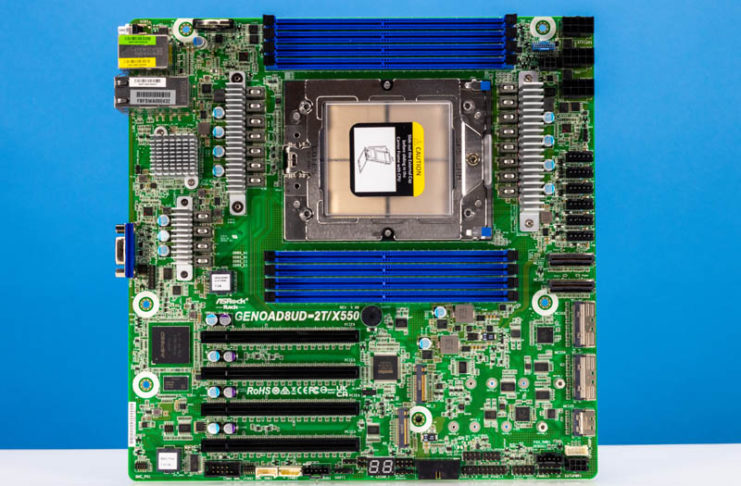How to Choose the Best Motherboard for Home Server Setup

Setting up a home server can greatly enhance your digital life. Whether you want to store and share media files, host a website, or run a small business network, a home server can handle it all. However, one of the most critical decisions you’ll make in this process is choosing the right motherboard. The motherboard serves as the backbone of your server, so making an informed choice is essential for a smooth and efficient home server setup. For example, if you want to choose the best motherboard for home server setup, then the motherboard for i9-12900k is the best option. In this comprehensive guide, we will walk you through the essential considerations and steps on how to choose the best motherboard for home server setup.
Understanding the Importance of the Motherboard
Before delving into the specifics of selecting a motherboard for your home server, it’s crucial to understand why this component is so significant. The motherboard, often referred to as the mainboard or logic board, is the central hub of your server’s hardware. It connects and communicates with all the other components, including the CPU, RAM, storage drives, and expansion cards. Therefore, choosing the right motherboard can impact the performance, compatibility, and expandability of your home server.
Determine Your Server’s Purpose
The first step in selecting the best motherboard for your home server setup is to define its purpose. Are you building a media server, a file storage server, a web server, or something else entirely? The motherboard you choose should align with your specific requirements.
For instance, if you plan to use your server primarily for file storage and backups, you won’t need a motherboard with advanced graphics capabilities. On the other hand, if you intend to run virtual machines or host a website, you’ll want a motherboard with robust CPU and RAM support.
Compatibility is Key
Compatibility is a crucial consideration when choosing a motherboard for your home server. Ensure that the motherboard is compatible with your chosen CPU, RAM, and other components. Check the motherboard’s socket type to match it with your CPU, and verify that it supports the amount and type of RAM you plan to use.
Moreover, consider the form factor of the motherboard. Common form factors for home server motherboards include ATX, Micro ATX, and Mini-ITX. Ensure that the motherboard fits comfortably within your chosen server case.
Evaluate Expansion Options
Your home server’s needs may evolve over time, so it’s wise to consider expansion options when choosing a motherboard. Look for a motherboard with ample PCIe slots and SATA connectors to accommodate additional storage drives, network cards, or other expansion cards. This will allow you to scale your server’s capabilities as your needs grow.
Built-In Features Matter
Some motherboards come with built-in features that can be advantageous for a home server setup. For example, integrated Wi-Fi and Bluetooth can be handy if you plan to place your server in a location where wired connections are challenging. Additionally, onboard RAID support can simplify data redundancy and storage management.
ECC Support for Data Integrity
If data integrity and reliability are paramount for your home server, consider a motherboard with Error-Correcting Code (ECC) memory support. ECC RAM can detect and correct memory errors, reducing the risk of data corruption or system crashes. While ECC support is more common in workstation and server-class motherboards, it’s worth the investment for critical data applications.
Price and Budget Considerations
Motherboards come in a wide range of price points. Your budget will play a significant role in your final choice. However, remember that investing a bit more in a high-quality motherboard can pay off in terms of performance, stability, and longevity. Balancing your budget with your server’s intended use is essential.
Brand Reputation and Reviews
Research the reputation of motherboard manufacturers and read reviews from users who have used the motherboard for home server setups. Reliable brands often provide better customer support and produce more stable, durable motherboards. User reviews can offer valuable insights into real-world performance and compatibility.
Remote Management Capabilities
For convenience and ease of management, consider a motherboard with remote management features. Some motherboards offer IPMI (Intelligent Platform Management Interface) or similar technologies that allow you to monitor and control your server remotely, even if the operating system is unresponsive. This can be particularly useful for headless server setups.
Energy Efficiency
Energy efficiency is a consideration if you plan to run your home server continuously. Look for motherboards that adhere to energy-efficient standards and have features like power management and fan controls to reduce energy consumption and noise.
Finding the Right Balance
When it comes to choosing the best motherboard for your home server, it’s all about finding the right balance between your server’s intended use, your budget, and future-proofing. To help you make the best decision, let’s explore a few additional factors to consider.
Processor Compatibility
The processor (CPU) compatibility with your chosen motherboard is non-negotiable. Ensure that the motherboard’s socket matches your CPU model. For example, if you’re using an Intel Core i7 CPU, look for a motherboard with an LGA 1200 socket.
Additionally, consider the CPU’s power efficiency. Some server motherboards support low-power CPUs that are designed for 24/7 operation, reducing electricity costs over time.
RAM Capacity and Speed
The amount of RAM (Random Access Memory) you need depends on your server’s workload. For basic file storage and sharing, 8GB to 16GB of RAM may suffice. However, if you’re running virtual machines or applications with high memory requirements, opt for a motherboard that can handle more RAM.
Also, pay attention to the RAM speed (measured in MHz). Faster RAM can improve server performance, especially in applications that require quick data access.
Storage Options
Consider the number and types of storage drives you plan to use. If you intend to store a vast amount of data, look for a motherboard with ample SATA ports for hard drives and SSDs. Additionally, consider M.2 slots for NVMe SSDs, which offer high-speed data access.
Furthermore, motherboards with RAID support can help you create redundant storage arrays for data protection and reliability.
Network Connectivity
Server motherboards often include multiple Ethernet ports for network redundancy and increased bandwidth. This can be vital for maintaining server availability and performance. Gigabit Ethernet is standard, but if your network infrastructure supports it, consider a motherboard with 10 Gigabit Ethernet for faster data transfers.
Form Factor and Case Compatibility
The form factor of your motherboard should match the size of your server case. Common form factors include ATX, Micro ATX, and Mini-ITX. Ensure that the motherboard fits comfortably within the case and that there is adequate airflow for cooling.
Operating System Compatibility
Before finalizing your motherboard choice, check for compatibility with your preferred operating system. Most server motherboards support a range of operating systems, including Linux distributions and Windows Server. However, it’s wise to confirm compatibility to avoid unexpected issues during setup.
Future Expansion and Upgradability
A server’s needs can evolve over time. To future-proof your server, select a motherboard with additional PCIe slots and available RAM slots. This will allow you to expand and upgrade your server without replacing the entire motherboard.
Warranty and Support
Finally, don’t forget to check the warranty and support options provided by the motherboard manufacturer. A longer warranty period and reliable customer support can provide peace of mind and assistance in case of any issues with your motherboard.
Compare Motherboard Options
Once you’ve identified your server’s purpose and considered the factors mentioned above, it’s time to compare motherboard options in the market. Create a shortlist of motherboards that meet your requirements, and then dive deeper into their specifications, features, and user reviews.
Look for detailed reviews and benchmark tests to assess their performance, reliability, and compatibility with various components. This step can help you narrow down your choices and make an informed decision.
Plan for Future Upgrades
Your home server’s needs may evolve over time, so it’s essential to plan for future upgrades when selecting a motherboard. Consider the motherboard’s support for future CPU generations, RAM capacity expansion, and the availability of new technologies.
Investing in a motherboard that can accommodate future upgrades can save you money in the long run and prolong the life of your home server.
Consider I/O Ports and Connectivity
Evaluate the I/O (input/output) ports and connectivity options offered by the motherboard. Ensure that it provides enough USB ports, Ethernet ports, and other connections for your server’s peripherals and networking requirements.
If your home server will serve as a media hub, having enough USB ports for external drives, a high-speed Ethernet port for network connectivity, and audio ports for speakers or headphones can be crucial.
Also Read: How to find professional MacBook repair in Dubai?
Conclusion
In conclusion, selecting the best motherboard for your home server setup is a critical decision that requires careful consideration of your server’s purpose, compatibility, expansion options, built-in features, and budget. By following the steps outlined in this guide and thoroughly researching your options, you can ensure that your home server runs efficiently, reliably, and with the flexibility to adapt to your evolving needs.
So, how to choose the best motherboard for home server setup? Remember to prioritize compatibility, consider future expansion, and weigh the importance of features like ECC support and remote management. With the right motherboard at its core, your home server will be well-equipped to serve your needs for years to come.



Leave a Reply
You must be logged in to post a comment.